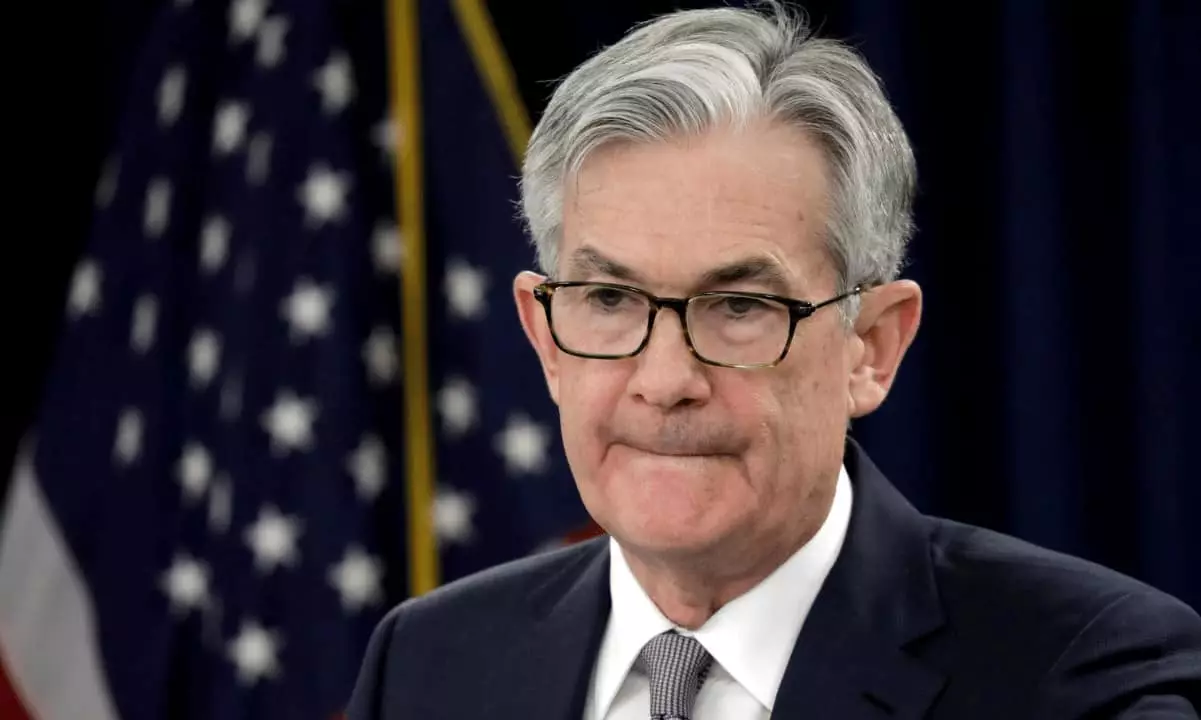The debate surrounding Bitcoin and its potential to challenge traditional currencies, particularly the U.S. dollar, has garnered significant attention in recent years. Federal Reserve Chairman Jerome Powell’s recent comments at The New York Times DealBook Summit have reignited discussions about the cryptocurrency’s value and future. By drawing parallels between Bitcoin and gold, Powell positions the digital currency as more of a speculative asset than a viable replacement for our existing financial systems. This evaluation is critical as it reflects broader sentiments about the nature of cryptocurrencies within the global economy.
Powell’s assertion that Bitcoin is akin to gold, mainly serving as a speculative instrument, raises important questions about its utility as a store of value. He emphasized its volatility and likened it to a virtual form of gold, indicating that it lacks the stability required to be considered a legitimate medium of exchange. This perspective challenges the often-held belief among crypto enthusiasts that Bitcoin might someday supplant fiat currencies. Investors looking for stability may find it hard to place trust in an asset that can fluctuate wildly in value over short periods. Thus, Powell’s analysis serves as a reminder of the inherent risks associated with trusting Bitcoin for long-term wealth preservation.
Despite the cryptocurrency’s dramatic rise in price, bringing its market capitalization to over $2 trillion, Powell remains unconvinced of its role in mainstream finance. His reluctance to view Bitcoin as a competitor to the dollar speaks to a broader skepticism among regulatory authorities about the long-term viability of cryptocurrencies. With Bitcoin now ranked as the seventh-largest asset globally, just behind gold and several major corporations, the necessity for a critical examination of its role both in financial markets and in consumers’ lives becomes increasingly evident.
Powell’s conservative approach towards cryptocurrencies is consistent with the federal stance adopted since the rise of Bitcoin. The events leading to the collapse of high-profile exchanges such as FTX played a pivotal role in heightening regulatory scrutiny. As the cryptocurrency market faces increasing pressure, led by government agencies like the OCC, FDIC, and the Federal Reserve, cryptocurrency-friendly banks have found themselves at a crossroads. Regulations designed to limit banks’ ties with crypto firms have led to significant consequences, including the shuttering of notable financial institutions like Silvergate Bank and Signature Bank.
With the reappointment of Jerome Powell as Federal Reserve Chair under the Biden administration, concerns have emerged regarding the potential chilling effect on the cryptocurrency market. Prominent figures in the crypto sphere, such as Galaxy Digital CEO Mike Novogratz, have voiced their fears over Powell’s influence stifling innovation and growth in the sector. Coupled with accusations of “Operation Chokepoint 2.0,” a purported effort to limit the cryptocurrency industry’s growth, the present regulatory environment seems increasingly hostile toward digital assets.
As Bitcoin navigates through these tumultuous waters, market sentiment has reflected a burgeoning skepticism among investors. The initial enthusiasm surrounding cryptocurrencies appears to have waned, replaced by concerns over regulatory implications and a lack of clear use cases that provide intrinsic value. The reality that entities like the Federal Reserve regard Bitcoin as more of a speculative asset could hinder further investment and adoption among mainstream users.
While Bitcoin and other cryptocurrencies may serve a niche market, their ability to disrupt and replace established financial systems remains dubious. Without significant reforms in regulatory frameworks and a shift in perception from entities like the Federal Reserve, Bitcoin may continue to oscillate between a speculative asset and a misunderstood new front of finance. As such, it seems more appropriate to consider Bitcoin not as a direct competitor to the U.S. dollar, but rather as a parallel asset that warrants careful examination in the context of global financial trends.
Ultimately, the future of Bitcoin and other cryptocurrencies may hinge on their acceptance as not only speculative instruments but also as legitimate players in the evolving landscape of global finance. However, as long as skepticism remains prevalent among regulatory authorities, Bitcoin’s path forward appears fraught with challenges.

